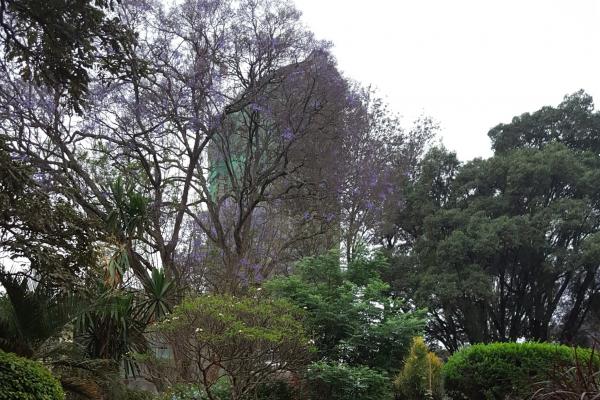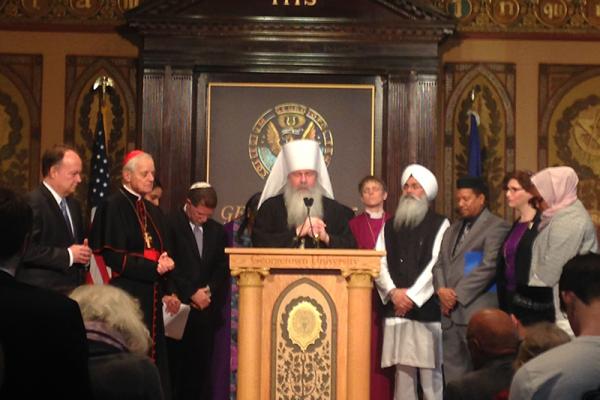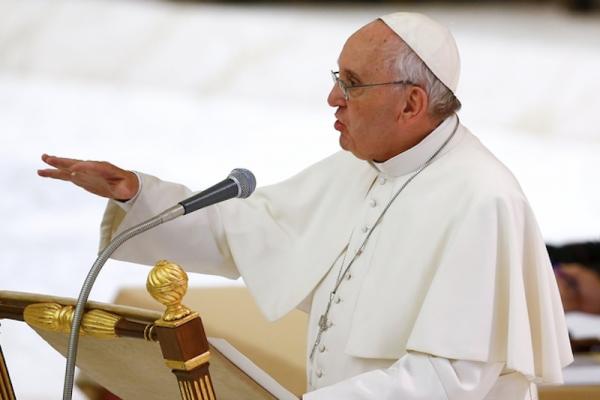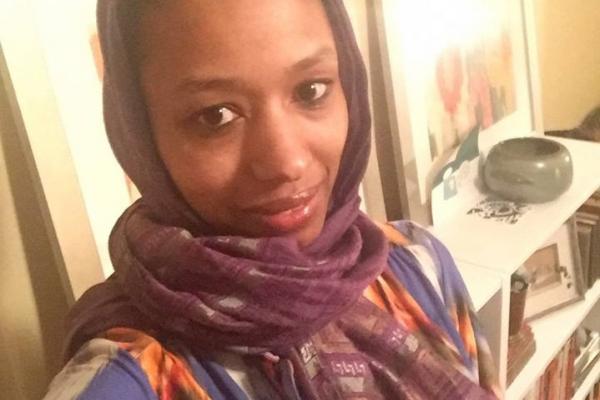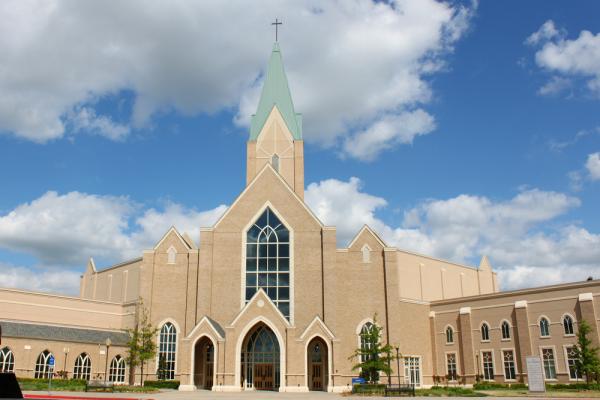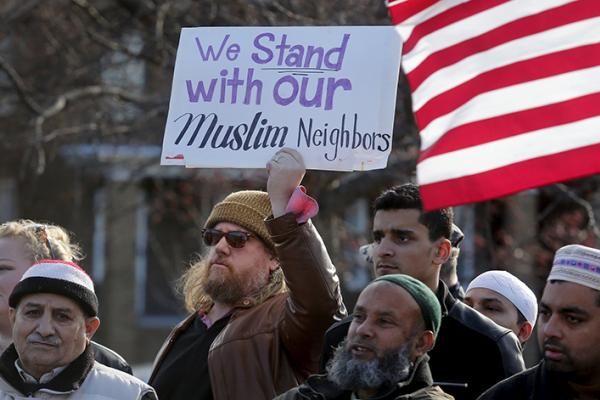The work of transformation — of land, or of legacy — is never complete. And for Western Christians, inheritors of a religion built and carried by ethnocentrism and economic exploitation, the work to detangle faith from the structures that continue to support it is an extra challenge. When survival of the church demands profit, what do you monetize? When community requires boundaries, whom do you leave out?
Vice President Joe Biden stood with clerics from different religions at Georgetown University on Dec. 16 and condemned the anti-Muslim rhetoric that has followed the recent shootings in Paris and San Bernardino, Calif.
“Look around. This is America,” Biden said, as he spoke on a stage with clergy wearing garb that varied from a priestly collar to a turban, and acknowledged the discomfort felt by many.
The vice president referred to the civil war in Syria and the millions of struggling refugees that some have said should be turned away.
The most coveted award for work on the Internet bestows honors in 231 categories, but “Religion & Spirituality” is no longer one of them.
A producer of the Webby Awards, now in its twentieth year, cited fewer submissions to the category.
“Unfortunately, entries in ‘Religion & Spirituality’ were decreasing each year,” Webby Award Produce Denise Gilley wrote to a past winner in the “Religion & Spirituality” category who had asked what had happened to it. The deadline for the 2016 contest is Dec. 18.
Jurors began deliberations on Monday afternoon. On Tuesday afternoon, the panel informed the judge it was deadlocked, and Williams ordered them to continue deliberating.
The panel, made up of seven women and five men, resumed deliberations Wednesday morning.
In Porter's trial, the prosecution brought medical experts, policing experts and other witnesses to show that Porter was criminally negligent when he failed to secure Gray in a seat belt in the van or call for a medic when Gray requested one.
The defense brought similar experts, as well as other Baltimore police officers, to show that Porter acted as a "reasonable officer" in his interactions with Gray and that Gray's injury was the result of an accident that Porter could not have prevented.
In America, baby showers are times for women to come together and celebrate new life; presents are exchanged, advice given, and games played. Mary and Elizabeth celebrated the new life within them by exchanging presents of joy, encouragement, song, and prophecy. Both women were carrying children of promise. Neither woman had a convenient pregnancy. Mary and Elizabeth’s celebration shows the importance of women coming together for prayer, praise, and prophecy.
Pope Francis is warning Catholics about con artists demanding money to pass through a holy door, such as the one opened in St. Peter’s Basilica and other churches for the Vatican’s jubilee year, telling them salvation cannot be bought.
“Be careful that there’s not someone a bit quick and too cunning that tells you that you must pay. No! You don’t pay for salvation. You don’t buy salvation. The door is Jesus, and Jesus is free!” the pope told crowds gathered Dec. 16 for his weekly audience in St. Peter’s Square.
Holy doors are being opened in cathedrals around the world as part of the jubilee year, which opened on Dec. 8 and runs until Nov. 20, 2016. The Catholic Church teaches that in making a pilgrimage through one such door, they evoke the passage from sin to grace.
Larycia Hawkins, a tenured professor at Wheaton College, pledged on Dec. 10 to wear hijab during Advent as a show of support to her Muslim neighbors.
"I don't love my Muslim neighbor because s/he is American," Hawkins wrote in a Facebook post.
"I love my Muslim neighbor because s/he deserves love by virtue of her/his human dignity."
"I stand in religious solidarity with Muslims because they, like me, a Christian, are people of the book. And as Pope Francis stated last week, we worship the same God."
Many people are mystified by “evangelicals.” It’s a word the average nonreligious person doesn’t often hear in the U.S. — except for when it is time to nominate another GOP presidential candidate. Then we hear about who those millions of “evangelicals” are supporting, always under the assumption that all evangelicals are into politics and all will support a Republican.
As an evangelical myself, this is just one of the many misunderstandings of evangelicals that drive me up the wall. It’s a problem I’ve tried to address in several of my books, most recently Evangelical Ethics (Westminster John Knox Press).
Let me take another brief crack at it here. I want to propose that there are four different kinds of evangelicals, or evangelicalism, yielding four very different results.
As a lifelong reader of fantasy and science fiction, my favorite stories were those set not only in a different time but a different world altogether. It’s exciting to enter into a wholly new landscape, and, as avid readers of both genres will say, there’s both power and joy in watching people and creatures do battle with the same forces we recognize in our daily lives (including, possibly, the power to overcome real-world social divisions — despite decades of the science v. religion binary, there’s ample evidence that both sides love hobbits).
Following a surge of attacks on mosques and Muslims — a backlash against recent extremist attacks in Paris and San Bernardino — Islamic leaders have been installing more security cameras and hiring more security guards. But as they worry about the physical safety of their flocks, they are also paying attention to the spiritual damage Islamophobia can inflict.
Hate crimes penetrate Muslims deeply and widely, said Kameelah Rashad, Muslim chaplain at the University of Pennsylvania.
“It erodes their sense of identity and their sense of their spiritual selves,” she said.
